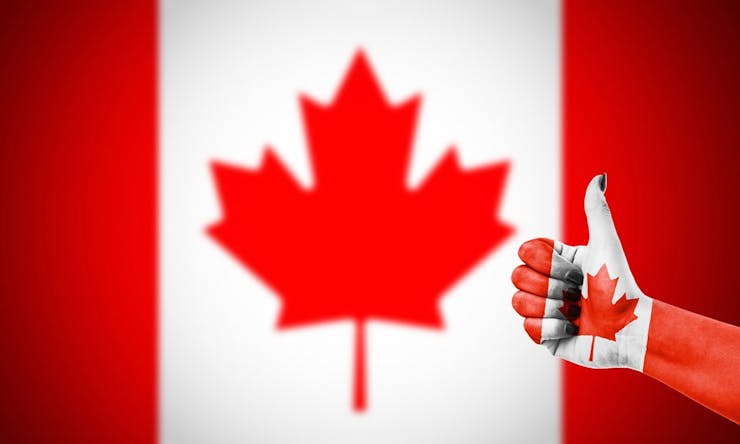On October 19th, Liberals gained a “sweeping victory” in elections for the Canadian Parliament, with Justin Trudeau replacing Conservative Stephen Harper as Prime Minister. This development promises to have a profound impact on the legal status of cannabis in Canada. The Liberal’s platform is unequivocal:
“We will legalize, regulate and restrict access to marijuana. We will…design a new system of strict marijuana sales and distribution, with appropriate federal and provincial excise taxes applied.”
But is legalization something Canadians want? A study conducted this summer by Forum Poll™ of 1,473 Canadian voters found that 53% favored legalization of cannabis. Among young voters, the percentage is even higher, at 61%. Support was highest on the coasts (Atlantic Canada at 63% and BC voters at 67%) and lowest among conservatives, at 32%.
When the questions were configured in a manner that provided more options regarding the legalities of cannabis, many more (70%) voters stood in favor of loosening restrictions. Even among those who identified themselves as conservatives, a majority (56%) favored either legalization or decriminalization.
It seems the people have spoken, and most are speaking for reducing or eliminating penalties for cannabis consumption. Let’s look at some of the reasons why.
1. A Lot of Canadians Use Cannabis and Like It
In 2014, the UN World Drug Report had 12.2% of Canadians using marijuana within the previous 12 months, fifth among developed countries. Additionally, at that time, nearly half of the Canadians surveyed reported they had used cannabis at least once in their lifetimes. Regardless of their experiences with cannabis, it’s reasonable to presume—especially in light of the Forum Poll™ figures—that most found no long-term deleterious effects and regard cannabis no more negatively than they do legal substances such as tobacco and alcohol.
2. Prohibition Is Immoral/Unjust
Among the most common objections to prohibition include:
- Incarcerating someone (and thereby branding them with a criminal record), or even imposing fines harms people more than does their consumption of cannabis.
- Police efforts (and resources) should not be squandered on busting people for something as benign as cannabis use. Let police concentrate on catching the real bad guys, and stop clogging the legal system with simple cannabis offenses.
- The government has no right to tell free adult citizens what or what not to put in their mouths.
3. Prohibition Prevents the Government From Regulating and Taxing Cannabis
Legalization and taxation would dry up the black market for cannabis and provide millions (probably more like billions) of dollars that could be used for worthwhile purposes. From a solely economic standpoint, prohibition of cannabis makes no more sense than did the prohibition of alcohol in the first third of the 20th century.
Of course, just because the majority of the populous supports a position doesn’t necessarily make that position right (witness the American South prior to the civil rights movement). But in this case, the moral and economic foundations appear unimpeachable. Now, the impediment seems to be waiting to see if Trudeau makes good on his promise to legalize cannabis.





